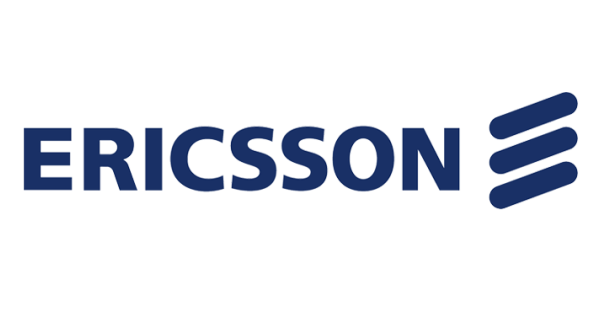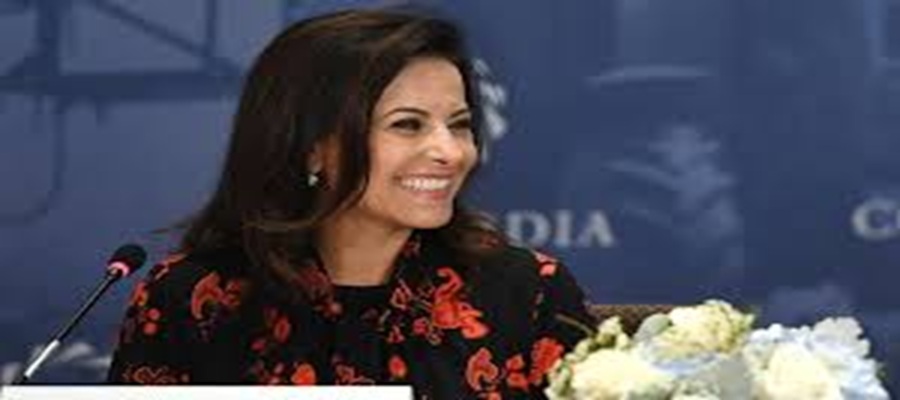Telecom
Ericsson Powers MTN to a Successful 5G Trails in Lagos

Ericsson, telecommunications equipment manufacturer assisted MTN Nigeria to a successful 5G trails in Lagos recently.

Ericsson
At the event MTN demonstrated the capacity of 5G service in enhancing tele-medicine, smart city solutions, high-speed internet of over 300 times faster than 4G using Ericsson equipment.
Speaking at the event Nasir Hayatou, senior manager, Radio Frequency Planning, MTN Nigeria, said that fibre to site is a major challenge.
“We told government that one of the major challenges is protection of our infrastructure, we have witnessed a situation where people come with truck and take our generators.
“We have communities today where we are not able to build towers because after setting up the sites the same community will go back and vandalize our equipment. Government needs to help us though the minister has given us assurance that very soon telecom equipment will be included as critical national infrastructure.
“One of the reasons we brought stakeholders to witness this trial is that we want people to see the advantages one gets when you simulate this technology within a very small environment, you can see the speed over 300 times more than 4G speed, you can imagine what the experience is like.
In the same vein, the Nigerian Communications Commission (NCC) decried the impact of vandalization of telecommunications infrastructure on quality of service as 5G trial is carried out around the country, noting that the effort in passing legislation on declaring telecom infrastructure critical national infrastructure will guarantee that Nigerians benefit optimally from the 5G technology.
Prof. Umar Danbatta, Executive Vice Chairman of NCC, who stated this at the event, also affirmed that 5G will be the bedrock of future communications.
According to him, 5G launch is a testament to the support of the Federal Ministry of Communications and Digital Economy to the Nigerian Communications Commission and the private sector.
Danbatta, who spoke through Mr. Henry Ojiokpota, NCC’s Lagos Zonal Controller at the event, which attracted traditional rulers, medical practitioners, students and the representatives of Lagos state government, also quoted a GSMA report that 5G is expected to support significantly, faster mobile broadband speeds and lower latencies than earlier generation networks.
He noted that 5G will enable the full potential of the Internet of Things (IoT). “5G is a game-changer that will revolutionise the way of life from education to agriculture, security to entertainment, and governance in general” Danbatta stated.
Explaining further, the EVC said the availability of a fast wireless network will enable virtual learning and empower students and teachers to re-imagine what is possible inside and outside their classrooms.
In healthcare delivery, Danbatta said 5G will ease Artificial Intelligence (AI) and revolutionise healthcare as it makes it easier to organise diagnoses and to decide on the best treatment plan for a specific patients.
“As demonstrated here today, by moving to 5G networks, healthcare organisations can use the AI tools they need to provide the best care possible from wherever they are in the hospital or clinic,” he stated.
Lagos is the third city in Nigeria, where MTN has demonstrated the potency of 5G technology. The demonstration of the technology had earlier taken place at Abuja and Calabar on 25th and 28th November respectively.
Telecom
SHELT Named in Prestigious 2025 MSSP 250 List for Cybersecurity Excellence

SHELT, a leading cybersecurity-as-a-service provider, has earned inclusion in the 2025 MSSP 250, the annual ranking of the world’s top 250 Managed Security Service Providers (MSSPs) by MSSP Alert, a CyberRisk Alliance publication.

SHELT
The list evaluates firms on business performance, service breadth, and industry impact, spotlighting those excelling in growth, operational excellence, and advanced managed security amid rising cyber threats. Selection criteria include annual recurring revenue, profitability, workforce expansion, business growth, and the depth of managed security offerings.
SHELT’s recognition underscores its investments in scalable security operations, threat intelligence, and tailored managed services across multiple regions, enabling clients to navigate complex risk landscapes effectively.
“Being recognised in the MSSP 250 is a meaningful milestone for our team,” stated Youssef Abillama, CEO of SHELT. “It validates our focus on building practical, resilient security services that help organisations manage risk and respond effectively to today’s evolving cyber threats.”
The company hailed the honour as testament to its teams’ dedication and expertise worldwide, reaffirming commitment to enhancing capabilities and delivering trusted cybersecurity solutions.
Telecom
Meta Names Ex-Trump Adviser Dina Powell McCormick as President

Meta Platforms, owner of Facebook, has appointed Dina Powell McCormick, a former adviser to President Donald Trump, as its new president and vice chairman, bolstering its leadership amid aggressive AI and infrastructure expansion.

Dina Powell McCormick
The announcement, made on Monday, positions Powell McCormick – who recently stepped down from Meta’s board after eight months – to guide overall strategy, including multi-billion-dollar investments in data centres and global partnerships.
A Goldman Sachs veteran with 16 years in senior roles and prior stints as deputy national security adviser under Trump and in the Bush administration, she brings deep finance and international ties to the role.
Meta CEO Mark Zuckerberg hailed her as “uniquely qualified” for the company’s next growth phase, while President Trump praised the move on Truth Social as a “fantastic choice”.
The hire signals Meta’s efforts to strengthen White House relations, following recent dinners with Trump and U.S. investment pledges worth hundreds of billions
Telecom
X Suspends Twitter Account for Rules Violation

X, the social media platform formerly known as Twitter, has suspended the @Twitter account, replacing its profile with a standard notice citing violation of platform rules.

Musk
The action, which occurred on Sunday, January 11, left users encountering the handle greeted by a bold “Account Suspended” message on a black screen, with no details provided on the specific rules broken or the duration of the suspension.
The development has sparked widespread confusion and nostalgia among users, given that Elon Musk rebranded Twitter to X in July 2023, approximately six months after acquiring the platform for $44 billion in late 2022.
The @Twitter handle had remained dormant since before Musk’s takeover, serving as a legacy remnant of the platform’s original branding, and its suspension appears to mark the final erasure of the Twitter name amid X’s ongoing efforts to combat spam, impersonation, and rule violations.
X’s official statement on the suspended page simply reads: “X suspends accounts that violate our rules,” without offering an appeal process or further explanation, unlike standard user suspensions.
Public reactions on social media ranged from humorous laments of “RIP Twitter” to speculation that the move resulted from automated moderation or a deliberate cleanup of legacy trademarks.
xAI’s Grok AI described it as a purposeful retirement of outdated elements rather than a genuine infraction, while neither Elon Musk nor X spokespeople issued any comment as of Monday morning.
This incident underscores the evolving identity of the platform under Musk’s ownership, which also saw a domain shift to x.com in 2024, further distancing it from its Twitter roots.
Industry observers note that while the suspension aligns with X’s stricter enforcement policies, the lack of transparency has fueled debates on consistency in applying rules to high-profile legacy accounts.

 General News2 days ago
General News2 days agoMinistry of Finance Leads FG-Backed Deal to Deliver Quality Homes and Boost Agriculture in Niger State

 News2 days ago
News2 days agoSERAP Sues INEC Over Alleged ₦55.9Bn Election Funds Diversion

 E-Financial2 days ago
E-Financial2 days agoNDIC Declares Second Liquidation Dividend for Heritage Bank Depositors

 Telecom2 days ago
Telecom2 days agoFG Plans to Invest $460m World Bank Loan in Fibre Infrastructure

 News2 days ago
News2 days agoAI Founders and Developers to Converge in Lagos for AI in Action 2026 conference

 News2 days ago
News2 days agoFG Inaugurates N40Bn CCTV Control Centre for Third Mainland Bridge

 General News2 days ago
General News2 days agoTax Reforms Panel Rejects KPMG’s Critique of New Laws

 E-Financial1 day ago
E-Financial1 day agoWema Bank Upgrades ALAT Banking App



























